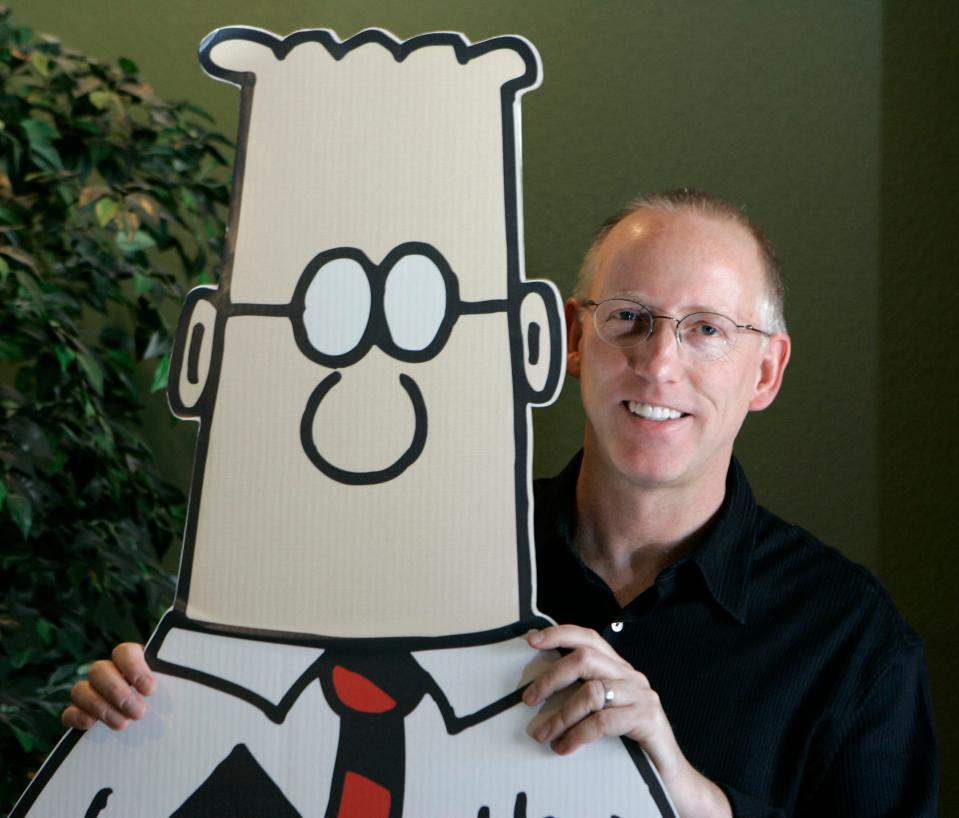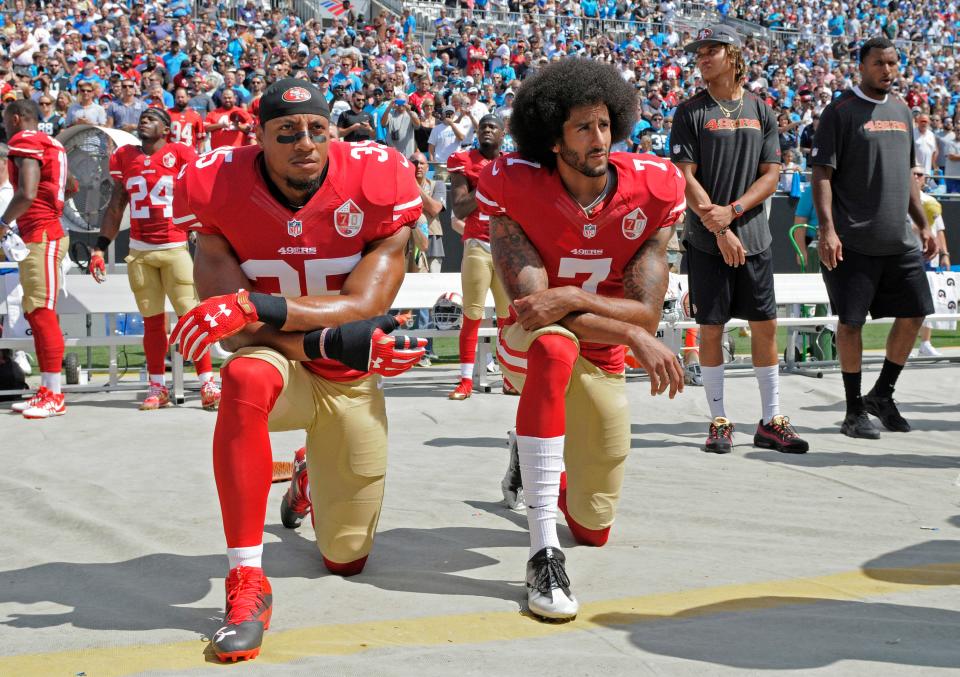'Dilbert' creator Scott Adams not the first to face repercussions for personal views
- Oops!Something went wrong.Please try again later.
When the syndicated cartoon "Dilbert" was swiftly removed from publication by media outlets nationwide this week following discriminatory comments by its creator, Scott Adams, it wasn’t the first time that a pop-culture figure has faced career consequences in the wake of controversy.
What happened to 'Dilbert'?
Numerous newspapers, including the USA TODAY Network, which includes The Daytona Beach News-Journal, announced they will stop running the widely syndicated comic strip "Dilbert" after Adams described people who are Black as part of a "hate group" that white people should "get away" from.
Editor's note:Dilbert comic strip to stop running in the News-Journal effective Tuesday
Andrews McMeel Universal, the syndication company that carried the cartoon, also severed its relationship with Adams.

Online, there has been a torrent of reaction. Many criticized Adams’ statements, while others defended his right to free speech and characterized him as the latest victim of the public-shaming machine that has become known as “cancel culture.”
Free speech not free of consequences
What happened to "Dilbert" is a reminder that free speech isn’t guaranteed to come with freedom of ramifications, said Mel Stanfill, associate professor in the Texts and Technology Program at the University of Central Florida in Orlando.
“This is a market decision that he is a brand liability,” said Stanfill, whose research examines cultural studies through the lens of media fans, social media and the law. “Freedom of speech is freedom of government suppression of your speech, but it’s not freedom to get paid to say whatever you want. No one has hauled him away in cuffs, some people just don’t want to buy his products.”
Adams joins a long list of pop-culture figures who faced career repercussions because of their personal opinions. Here are a few of them:
J.K. Rowling
The author of the wildly popular “Harry Potter” book series, Rowling in recent years has been accused of transphobia and bigotry in the wake of her comments on transgender rights and gender identity. In 2020, she sparked more backlash with a 3,600-word essay that she posted on her website that outlined her views on the subject.
Joe Rogan
During the pandemic, podcaster, comedian and actor Joe Rogan sparked a boycott of Spotify by some musicians and entertainers because of vaccine misinformation he presented on the service. Among the most high-profile opponents was veteran rock ‘n’ roller Neil Young, who pulled his music from Spotify in protest.
In January 2022, nearly 300 scientists, physicians, professors, doctors and health care workers wrote an open letter to Spotify expressing concern over "false and societally harmful assertions" on Rogan’s podcast. Spotify did not remove the show.
Roseanne Barr
In 2018, actress Roseanne Barr was fired from the successful relaunch of the sitcom that bears her name after making a racist remark on Twitter. ABC subsequently rebranded the show, now titled "The Connors."
Colin Kaepernick
The NFL quarterback became a lightning rod for controversy during the 2016 NFL season when he began to kneel during the national anthem as a form of protest of police brutality and racial inequality.

It sparked a nationwide debate, fueled by comments by then-President Trump, that essentially ended Kaepernick’s NFL career in the wake of the backlash. At the same time, Kaepernick’s gesture also was embraced in a major advertising campaign by Nike to mark the 30th anniversary of the company's "Just Do It" campaign in 2018.
The Dixie Chicks
The Dixie Chicks, at the time among the biggest stars of country music, became the target of a massive boycott in 2003 after lead singer Natalie Maines made a comment critical of President Bush in the early days of the Iraq War.
Stores pulled the band's music from their shelves and radio stations stopped playing their songs. Although the band continued to release new music, its career never matched its initial popularity.
This article originally appeared on The Daytona Beach News-Journal: 'Dilbert's' Scott Adams not first to face backlash from opinions

